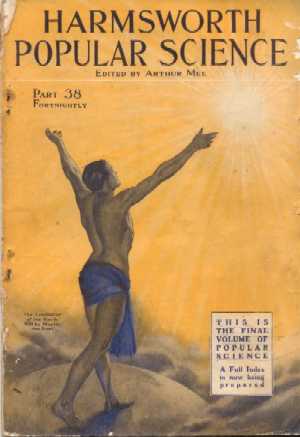
Karl Pearson was an English mathematician and biostatistician. He has been credited with establishing the discipline of mathematical statistics. He founded the world's first university statistics department at University College, London in 1911, and contributed significantly to the field of biometrics and meteorology. Pearson was also a proponent of social Darwinism and eugenics. Pearson was a protégé and biographer of Sir Francis Galton. He edited and completed both William Kingdon Clifford's Common Sense of the Exact Sciences (1885) and Isaac Todhunter's History of the Theory of Elasticity, Vol. 1 (1886–1893) and Vol. 2 (1893), following their deaths.

Octavia Estelle Butler was an American science fiction author. A multiple recipient of both the Hugo and Nebula awards, she became in 1995 the first science-fiction writer to receive a MacArthur Fellowship.
The term superhuman refers to humans or human-like lifeforms with enhanced qualities and abilities that exceed those naturally found in humans. These qualities may be acquired through natural ability, self-actualization or technological aids. The related concept of a super race refers to an entire category of beings with the same or varying superhuman characteristics, created from present-day human beings by deploying various means such as eugenics, euthenics, genetic engineering, nanotechnology, and/or brain-computer interfacing to accelerate the process of human evolution. Throughout history, the discussion of superhuman traits and the idea of the ideal human in physical, mental, or spiritual form has influenced politics, policy, philosophy, science and various social movements, as well as featuring prominently in culture. Groups advocating the deliberate pursuit of superhuman qualities for philosophical, political, or moral reasons are sometimes referred to as superhumanist.
Popular science is an interpretation of science intended for a general audience. While science journalism focuses on recent scientific developments, popular science is more broad-ranging. It may be written by professional science journalists or by scientists themselves. It is presented in many forms, including books, film and television documentaries, magazine articles, and web pages.
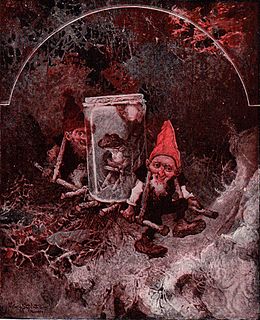
The Children's Encyclopædia was an encyclopaedia originated by Arthur Mee, and published by the Educational Book Company, a subsidiary of Northcliffe's Amalgamated Press, London. It was published from 1908 to 1964. Walter M. Jackson's company Grolier acquired the rights to publish it in the U.S. under the name The Book of Knowledge (1910).

Sir Philip Armand Hamilton Gibbs KBE was an English journalist and prolific author of books who served as one of five official British reporters during the First World War. Four of his siblings were also writers, A. Hamilton Gibbs, Francis Hamilton Gibbs, Helen Hamilton Gibbs, and Cosmo Hamilton, as was his father Henry James Gibbs, and his own son, Anthony.

Spiral is a fictional supervillain turned superhero appearing in American comic books published by Marvel Comics, commonly in association with Longshot or the X-Men. Created by writer Ann Nocenti and artist Art Adams, the character first appeared in Longshot #1, in which she was established as a lieutenant for that titular character's archenemy, Mojo. Prior to Longshot joining the X-Men, Spiral also became a recurring adversary of that team and each of the various X-Men subgroups, as well as serving as the archenemy turned ally of X-Men member, Psylocke. She then joined a team of X-Force led by X-Men member Storm.

Arthur Henry Mee was an English writer, journalist and educator. He is best known for The Harmsworth Self-Educator, The Children's Encyclopædia, The Children's Newspaper, and The King's England. He produced other works, most of which had patriotic tone, particularly when discussing the countryside or subjects from history.

James Murdoch Geikie PRSE FRS LLD was a Scottish geologist. He was professor of geology at Edinburgh University from 1882 to 1914.

Miss Britain III is a racing power boat designed and built by Hubert Scott-Paine.
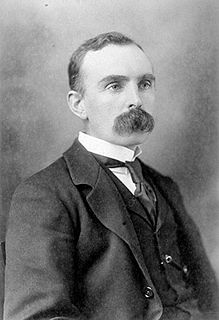
Prof John Walter Gregory, FRS, FRSE FGS LLD was a British geologist and explorer, known principally for his work on glacial geology and on the geography and geology of Australia and East Africa.

Brian J. Ford FLS HonFRMS is an independent research biologist, author, and lecturer, who publishes on scientific issues for the general public. He has also been a television personality for more than 40 years.

Thomas Charles Hope was a British physician, chemist and lecturer. He proved the existence of the element strontium, and gave his name to Hope's Experiment, which shows that water reaches its maximum density at 4 °C (39 °F).
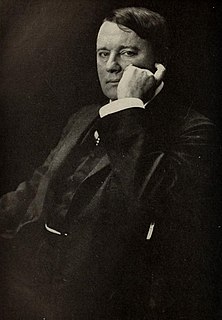
Alfred Charles William Harmsworth, 1st Viscount Northcliffe was a British newspaper and publishing magnate. As owner of the Daily Mail and the Daily Mirror, he was an early developer of popular journalism, and he exercised vast influence over British popular opinion during the Edwardian era. Lord Beaverbrook said he was "the greatest figure who ever strode down Fleet Street." About the beginning of the 20th century there were increasing attempts to develop popular journalism intended for the working class and tending to emphasize sensational topics. Harmsworth was the main innovator.

William Boyd Carpenter was a Church of England cleric who became Bishop of Ripon and court chaplain to Queen Victoria.
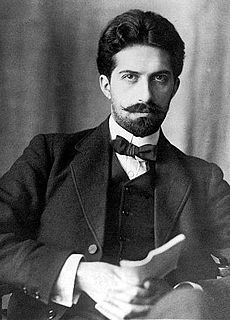
Dr Caleb Williams Saleeby FRSE was an English physician, writer, and journalist known for his support of eugenics. During World War I, he was an adviser to the Minister of Food and advocated the establishment of a Ministry of Health.

Skeptics in the Pub is an informal social event designed to promote fellowship and social networking among skeptics, critical-thinkers, freethinkers, rationalists and other like-minded individuals. It provides an opportunity for skeptics to talk, share ideas and have fun in a casual atmosphere, and discuss whatever topical issues come to mind, while promoting skepticism, science, and rationality.
Alison Caroline Bashford, is an Australian historian and academic, specialising in global history and the history of science. She has a particular interest in the modern histories of gender and colonialism. Since 2017, she has been Professor of History at the University of New South Wales. She was previously Vere Harmsworth Professor of Imperial and Naval History at the University of Cambridge (2013–2017).
Hugo Nelson Tyerman was a noted British journalist and writer, described by The Times as "the doyen of Fleet Street Educational Journalists".
The history of journalism in the United Kingdom includes the gathering and transmitting of news, spans the growth of technology and trade, marked by the advent of specialised techniques for gathering and disseminating information on a regular basis. In the analysis of historians, it involves the steady increase of the scope of news available to us and the speed with which it is transmitted.
